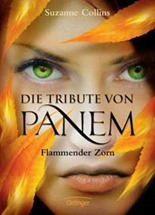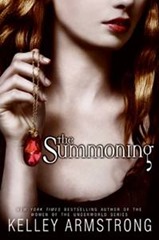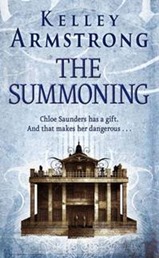Cover:
Genre: YA Paranormal Romance
This is the book for you if you like:
- Superficial romance stories
- Angel mythology
Summary: (from author’s website)
When Katrina spots a homeless guy sleeping in the alley behind her grandmother's coffee shop, she leaves him a cup of coffee, a bag of chocolate-covered coffee beans, and some pastries to tide him over, never expecting this random act of kindness to turn her life upside down. The adorable vagrant, Malcolm, is actually a guardian angel on a break between missions, and now he won't leave until he can reward Katrina's selflessness by fulfilling her deepest desire. Fame and fortune seem like the obvious requests, but after two botched wishes, Malcolm knows Katrina is hiding something from him. But how can she tell him the truth, when her heart's desire has become Malcolm himself?
Thoughts on covers:
Hardcover edition, paperback edition, French edition
I really dislike the hardcover edition, but I think the angel coffee cup one is pretty cute.
Title:
I think the title covers both of the important aspects of the story, so it’s fitting. It’s also different enough to attract attention.
Characters:
I don’t have any real feelings towards the characters in this book. Katrina, the protagonist, is annoying in many ways, though she gets better ‘til the end. Vincent and Elizabeth are presences that don’t have much of a personality. The ones I loved the most were Malcolm – for his strange ways, his outsider status, his unintentional wit – and Irmgaard, who had the most interesting story of all and who I really wanted to get to know better.
Setting:
The story is set in Nordby, which, in this story, is an American town that has both people with Norwegian roots as with Native American roots. It took me a while to get where exactly it was located, because there’s a Nordby in Denmark too, which at first seemed like the more logical location (the only question then was, why on earth would an American writer write a story set in Denmark?). I don’t think the setting does much to the story; had it just been an average town in America, with an average mix of people, the story would have remained the same. I wonder why Selfors took so much effort in describing the Old Ways, as they are called quite often in the book, without actually having them influence the story.
General story:
I feel like this story was trying to be three stories at once, with each story just out of reach of being good.
At first glance, based on the summary and the designated genre, you expect a love story. And it partly is; there is this whole flirtation going on between Katrina and Malcolm, but for three third of the book I wondered whether maybe Vincent was supposed to be the love interest. And it’s not even like it’s set up as a love triangle either; the ending of the book makes it perfectly clear that Vincent and Katrina really see each other as friends. I don’t feel like Malcolm is enough of a presence in Katrina’s life to make this a romance story; there isn’t much of a relationship at all, actually, just attraction on her side and intrigue on his side.
Then, it is a story about friendship and what friends should do for each other. Katrina is very focussed on what others should do for her because of their friendship, but in the entire book we don’t once see her do something for either Elizabeth or Vincent. She only complains; about Vincent dating Heidi and betraying her, and about Elizabeth having so much money that she’d never understand.
Then, this story seems to want to give us a lesson in everyone has a talent and be careful what you wish for. It seems weird to put the first lesson in a story that has magic beans, and the second one is weird because the story ends with a wish that made everything perfect. Also, the moralising paragraphs were weirdly intertwined with the dialogue/action ones. The transitions were a bit jarring.
Mind you, I liked some of it. Actually, I liked every part that was about Malcolm’s life as a messenger. The envelope that kept getting heavier, his black notebook, his life that isn’t a life but just an existence… I feel like Selfors could have done so much with the mythology she built around him, and instead she had him around for what seemed like only half the book and spent the rest on a coffeehouse rivalry that just seemed ridiculous. The same goes for Irmgaard; she’s such an interesting character, and her story is really great, but she’s handled as an aside. I would have loved it if this story had been told from Malcolm’s perspective; that’d have been great.
Will I read other books from this author?
I probably won’t.
Overall rating: 2/5
![clip_image002[4] clip_image002[4]](http://lh6.ggpht.com/-8GCzW_GjNx0/UVAtVM4FkWI/AAAAAAAAAbA/Ukw7ivHKMVg/clip_image002%25255B4%25255D_thumb%25255B2%25255D.jpg?imgmax=800)
![clip_image004[4] clip_image004[4]](http://lh4.ggpht.com/-sUsqebXq1wk/UVAtXVWWYOI/AAAAAAAAAbQ/8hh34ycaI-k/clip_image004%25255B4%25255D_thumb%25255B11%25255D.jpg?imgmax=800)
![clip_image006[4] clip_image006[4]](http://lh6.ggpht.com/-vYYaSmyfzi0/UVAtZCNNZ3I/AAAAAAAAAbg/ZxidXf30cd0/clip_image006%25255B4%25255D_thumb%25255B2%25255D.jpg?imgmax=800)





